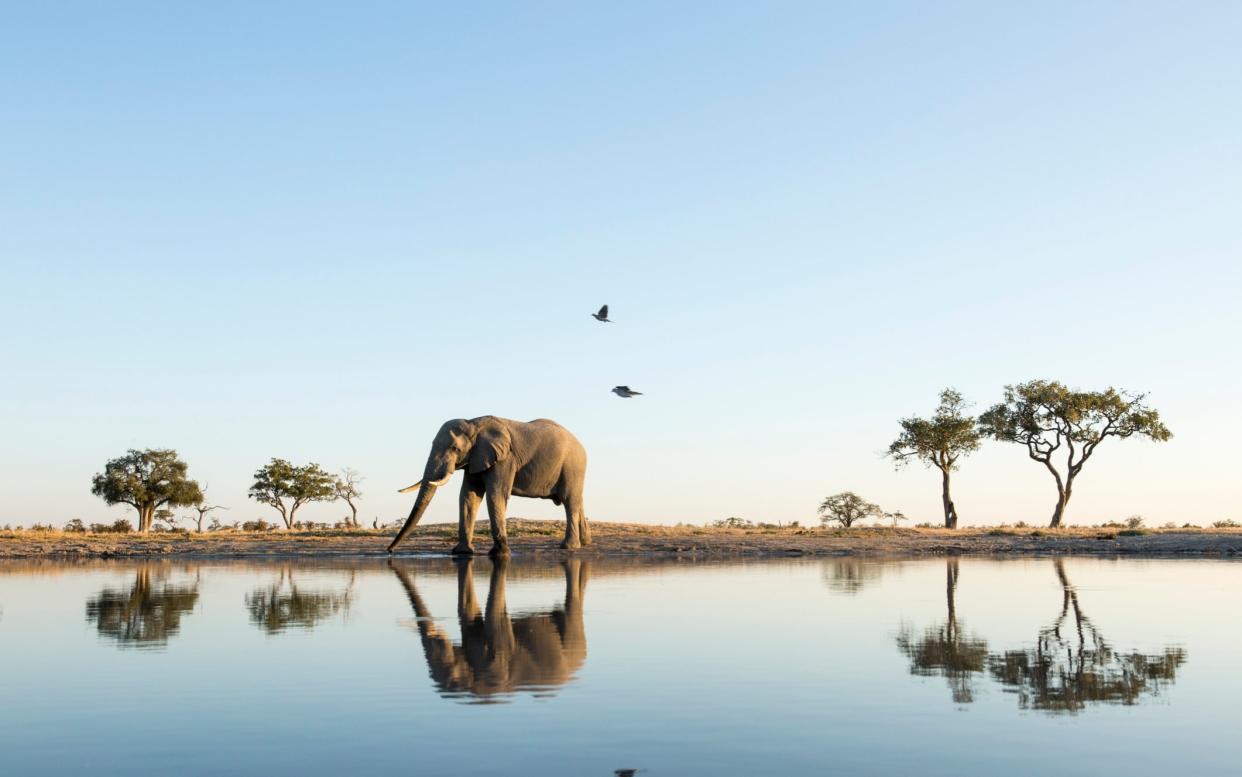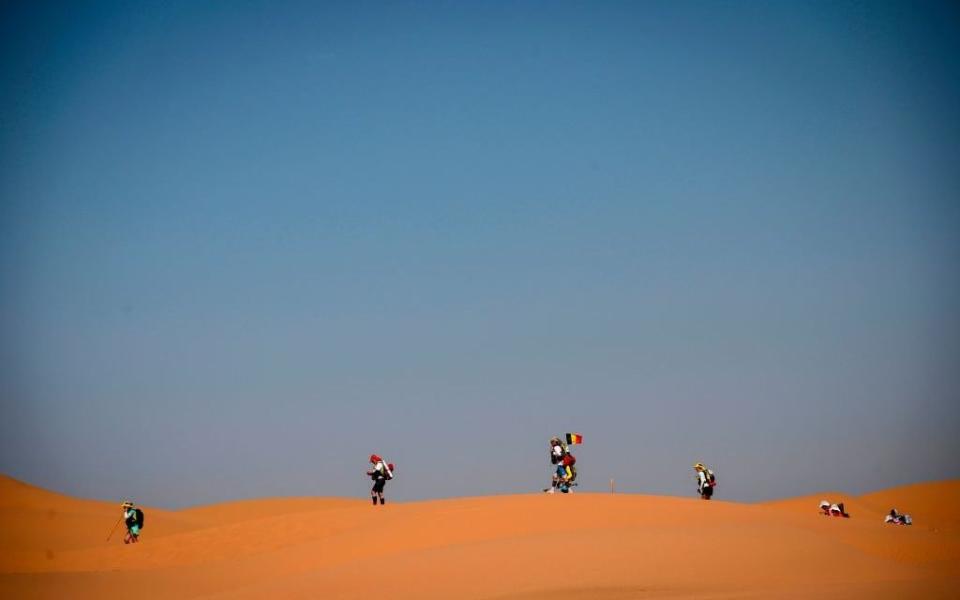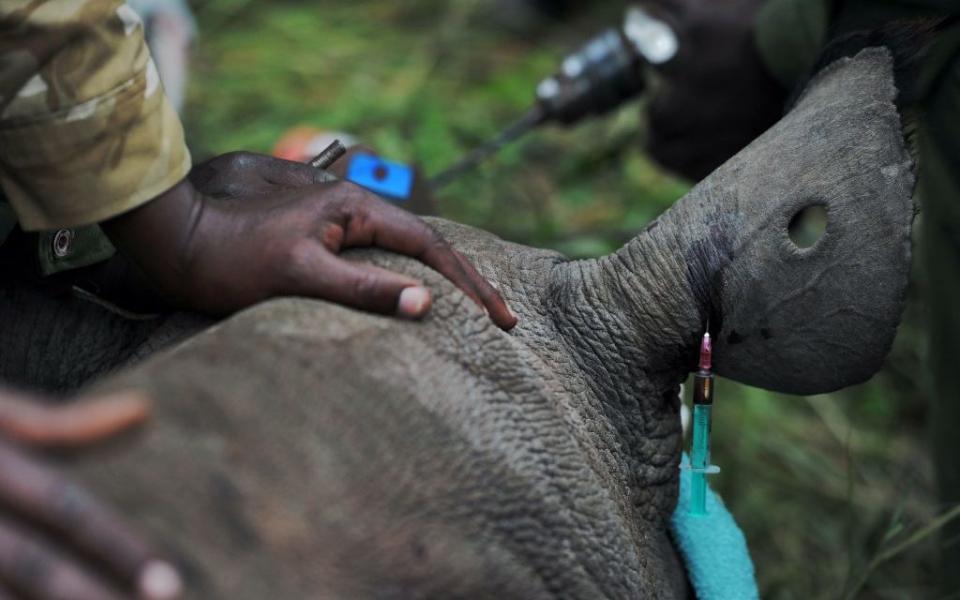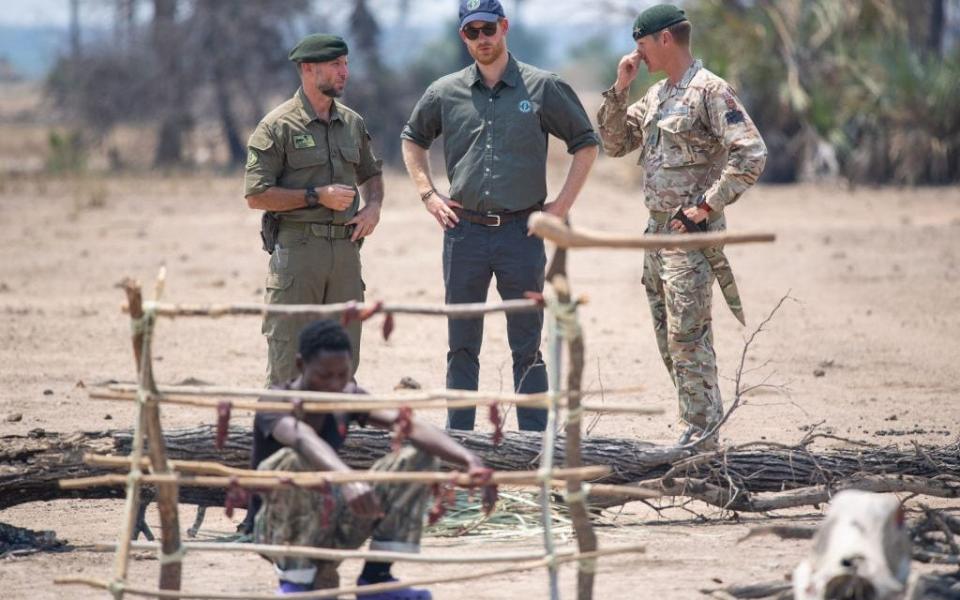Profits versus poaching: The new travel operator hoping to revolutionise the safari

The best laid plans of mice and men – as the oft-paraphrased Robert Burns quotation runs – have a habit of going awry. You would certainly be thinking this way if you had spent most of 2019 preparing to launch a tour operator, and had tentatively opened for business in the November – only to find yourself overtaken by global troubles almost immediately.
“Yes, it’s far from ideal to be building a new travel company during a pandemic,” Charlie Potter says, with a wry smile and a resigned raising of the eyebrows. “And I’m sure that, if there hadn’t been a pandemic, we would be much further down the line than we now are. But we made a decision at the start of this journey that what we are doing is worthwhile – and something that needs to be done. And we are determined to get there.”
The “there” he refers to is hugely interesting. Potter is managing director and one half of For Rangers Adventures (forrangersadventures.com) – a freshly minted safari specialist, but one that, in a crowded marketplace, comes with a difference. As its name suggests, the company has been set up with the pivotal aim of supporting the welfare of wildlife rangers in Africa. It will do so via a commitment to send 40 per cent of its profits back to the continent – to underpin the work of conservation projects, and to help pay the salaries of those who protect the big beasts of the savannah from the poachers who prey on them.
Potter – whose CV includes prior jobs for travel firms Kuoni, Exodus and Cox & Kings – had been imagining the possibilities of a financially proactive safari operator. “Wildlife conservation is important to me,” he explains. “And it was, long before I got into the travel industry. For some time, I’d wanted to create an organisation where more of the money is redirected. Because I know from first-hand experience that if a travel operation and its business model is set up a certain way, there is money which can be redistributed.”
“My thinking was that we could set up a tour operator which focuses on sustainable properties, and travelling sustainably – and reinvest the tourism-generated revenue into ensuring that the places travellers really want to see can still be visited in 30 years’ time.”
A noble ambition – and one in which he has the help of an ideal business partner. For Rangers Adventures’ work in the field is helmed by Sam Taylor – a conservationist born, raised and based in Kenya. Taylor was part-responsible for the birth of For Rangers in its original incarnation – as a rolling charitable campaign (forrangers.com) that, since its launch in 2015, has work tirelessly to help the guardians of Africa’s conservation zones. And it has done so with a fair degree of success. In six years, it has grown to the point that it now supports the livelihoods of wildlife rangers in 14 different African countries.
Duncan Murimi was 21 years old. In May 2017 at 8pm he was shot in his house multiple times and died an hour later despite the best efforts of those around him to give him first aid. One bullet had penetrated his lung and he could not be saved. pic.twitter.com/4legkkHzj2
— For Rangers (@ForRangers) December 22, 2017
Some of this was done via old-fashioned sweat-and-toil fund-raising. Taylor himself ran the notorious Marathon des Sables – a 156-mile six-day endurance race across the desert sands of southern Morocco. Similar “ultra-marathons” have been run in Peru. The full length of the River Yukon (in Canada and the USA) has been kayaked. Everest and its Nepalese colleague Mount Manaslu (the planet’s eighth highest peak) have been climbed.
But Taylor increasingly wanted to expand on this, and had the knowledge, skills and perspective to do so. In 2012, he was working at the Borana Conservancy in Kenya’s central Laikipia region (where he first met Potter, who was leading horse-riding excursions as part of a gap year). “During that time, I got involved with a company there who were training rangers,” he says. “One thing we found very difficult was to raise funds for basic kit and equipment, in what was an especially bad time for rhino poaching. My feeling was that, if the guides in charge of looking after the rhinos were invested in, and their welfare really looked after, this was a great means to try to tackle the problem.”

Few would deny that wildlife rangers deserve all possible support. Not least because, above all, theirs is an incredibly dangerous job. “One of the things For Rangers has tried to do is amplify the fact that rangers are consistently being killed in the line of duty,” Taylor continues. “We lose over 120 of these guys across Africa every single year. To put that into context, in the period since we started this, more rangers have died protecting wildlife than there have been British servicemen killed in Iraq and Afghanistan together.”
There are plenty of dreadful stories which bear out this uncomfortable truth. To pick a year at random, the first half of 2017 brought particularly bleak headlines. Eight men working in wildlife protection, including five rangers, were killed across four African countries in the February – including a young ranger who was shot dead by elephant poachers in Kenya’s Tsavo National Park. Two further game rangers were gunned down in the June – this time in Laikipia – after an attempt to retrieve stolen cattle turned violent.
“We felt this situation was something that needed to be highlighted,” Taylor adds. At first, it was bits and bobs. Then we started on broader projects. We set up a health and life insurance scheme – across Africa. We now have over 2,500 rangers enrolled in that plan.”

However, the bullet is not the only risk to wildlife rangers’ safety. Another is crushing monetary pressure. “We also want to look at a financial literacy programme for the wildlife guys,” Taylor explains. “One of the biggest ongoing issues is that poaching syndicates will target rangers who have got themselves into financial difficulties. They know these men are vulnerable. In Kenya, there are some very aggressive marketing schemes which encourage collateral-free loans. And there’s a big cellphone gambling network. Guys with little understanding or support with their finances can get themselves into a lot of trouble, and then have no alternative but to collude with poaching syndicates to get out if it. So we want to encourage a system where rangers have access to support; where, if they do get themselves into financial difficulties, they are supported to get out.”
Travel restrictions in the wake of Covid have caused a dramatic escalation in this problem. Tourism into Africa has been all but strangled at source – in Britain, aside from a brief window in November and December when Rwanda and Botswana were part of the “travel corridor” list, all journeys to the continent have effectively been banned since late March. “Obviously, with Covid, the revenue streams to conservation areas from tourism have been hammered,” Taylor says. “The conservation areas have dug in, but large numbers of rangers have been laid off – certainly in countries that are perhaps less established than Kenya on the conservation front. The philanthropic community has been extraordinarily supportive, even though the economic situation in the Western world has not been great either. But, for the majority of this last year, a lot of rangers in Kenya have been placed on half pay. That’s quite a serious thing when you have inflating prices, you have a family to feed, and you still have to go out there and do your job, regardless of whether there are tourists here. You still have to make sure that the rhino poaching is kept down.”

Taylor has hard-won experience of the threat to the rhinoceros’s survival. In his work at Borana, he was part of the team which, in 2013, relocated 21 black rhinos into what were deemed to be the more significant protections of the Conservancy – 11 from the nearby (in Kenyan terms) Lewa Wildlife Conservancy, a further 10 from the more distant Lake Nakuru National Park. This was some achievement – moving one 3,000-pound wild animal is quite the challenge, let alone 21 – but also a necessary endeavour. Black rhino numbers have plummeted in the last century. Where there were several hundred thousand on the continent in 1900, there were fewer than 2,500 come the year 2000. That number has since risen somewhat – by 2019, the population had increased to around 5,500. But one sub-species, the western black rhinoceros, was nonetheless declared extinct in 2011.
Inevitably, the Covid-19 pandemic has exacerbated the long-suffering rhino’s exposure to would-be assassins. “There has been a very real threat of opportunistic poaching for the last 10 months – because the poaching syndicates all believe that the conservancies’ abilities to cope have been lessened,” Taylor says. “And there has certainly been a spike in the bush-meat trade; the snaring of animals and that sort of indiscriminate form of poaching, which is a complicated issue in itself. So yes – places have been hit very hard.”
While grateful that outside funding by philanthropic organisations has, to an extent, propped up the ranger network, Taylor is frustrated that a more systematic method of funding is not in place – and that tourism does not do more. “Conservation areas should not need to rely on philanthropy,” he argues. “The resources are there to make it work. It just has to be done responsibly. And that boils down to the fact that, if someone comes on safari to Kenya, 30 per cent of what they pay should not be staying in London, or wherever. Ten per cent might stay in London, but far more of it should go to the location. And that’s what we really want to change. We want to revolutionise the safari industry.”
Potter has spent the last 18 months developing a range of itineraries that will bear the weight of the company’s commitment to reinvest 40 per cent of profits. Currently, the For Rangers Adventures “brochure” covers 10 countries (Kenya, Namibia, Tanzania, Zambia, Botswana, Zimbabwe, South Africa, Rwanda, Malawi and Uganda), but Potter hopes that this will soon be extended to the whole of sub-Saharan Africa. “In 20 years’ time, I want our model to have been a big enough success that sustainably reinvesting your profits has become a key element of a thriving tourism business,” he says. “I hope others follow us.”

Both men agree that the pandemic has underlined both the need for action, and the relevance of their project. “Covid has created a huge amount of awareness about conservation. But it has also highlighted how precarious some of the revenue streams going into conservation are,” Taylor comments. “Tourism is a relatively fragile industry, in Africa particularly. In many countries you get occasional periods of civil unrest, or fraught elections, or droughts, or bad publicity. And tourism drops off overnight. We want tourists to appreciate that the health of conservation projects is directly linked to all that.”
All the same, he is able to make out a potentially positive consequence of the situation.
“With this being a pandemic, everyone has been affected to a degree, whether in the First World or the Third,” he continues. “I would like to think there is a heightened empathy as a result. People are usually ready to be responsible, and to support things. But the virus has also been a real wake-up call. We, as a species, are on an edge right now, and we need to do what we can to pull it back. So if that means going on a safari holiday – do it right.”
Potter is keen to emphasise that For Rangers Adventures is not just about eco-messaging and ethics. The company is also, he stresses, in the business of selling safari breaks to wonderful locations. “If you want to come to Kenya, and you want to spend two weeks where your time is focused on conservation, then we’ve got that, and we can do that,” he smiles. “But if you want to come to Kenya, and you just want to see the animals, but you want to do this knowing that your money is going somewhere good - we can do that too.”
For Rangers Adventures (020 3886 1424; forrangersadventures.com) is planning to run three guided safaris in the coming autumn. These will travel to Botswana (the Okavango Delta and Makgadikgadi Pans National Park; October 1-10; from £8,405 per person, including flights), Kenya (the Borana Conservancy; October; from £9,985 per person, including flights) and Namibia (the Desert Lion Conservation Project, the shipwrecks of the Skeleton Coast; October 20-November 1; from £11,925 per person, including flights).
See our guide to the best hotels in Kenya

